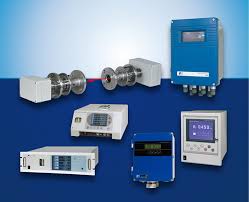Analyzers
An analyzer, in the context of industrial processes and instrumentation, refers to a device or instrument used to analyze and measure various properties or characteristics of a substance or sample. Analyzers are essential tools in process control, laboratory analysis, and quality assurance, enabling precise monitoring and measurement of specific parameters.
There are different types of analyzers available, each designed to measure specific properties of the substance being analyzed. Some common types of analyzers include:
1. Gas Analyzers: Gas analyzers measure the concentration of different gases present in a gas sample. They are used in various industries, including environmental monitoring, industrial processes, and emission control.
2. Liquid Analyzers: Liquid analyzers are used to measure various properties of liquids, such as pH, conductivity, turbidity, dissolved oxygen, and other chemical parameters. They are widely used in water treatment, chemical processing, and pharmaceutical industries.
3. Particle Analyzers: Particle analyzers measure and analyze the size distribution and concentration of particles in a sample. They are used in applications such as particle characterization, air quality monitoring, and environmental analysis.
4. Spectrophotometers: Spectrophotometers measure the absorption, transmission, and reflection of light by a substance to determine its concentration or chemical composition. They are commonly used in chemistry, biochemistry, and material analysis.
5. Mass Spectrometers: Mass spectrometers are used to identify and quantify the chemical composition of a sample by measuring the mass-to-charge ratio of ions generated from the sample.
6. Chromatographs: Chromatographs separate and analyze the components of a sample based on their different affinities to a stationary phase and a mobile phase.
7. Moisture Analyzers: Moisture analyzers measure the moisture content in solid samples, commonly used in food processing, pharmaceuticals, and other industries.
Analyzers play a crucial role in ensuring product quality, process efficiency, and compliance with regulations in various industries. They provide real-time data and valuable insights, enabling operators and researchers to make informed decisions and maintain optimal process conditions.

